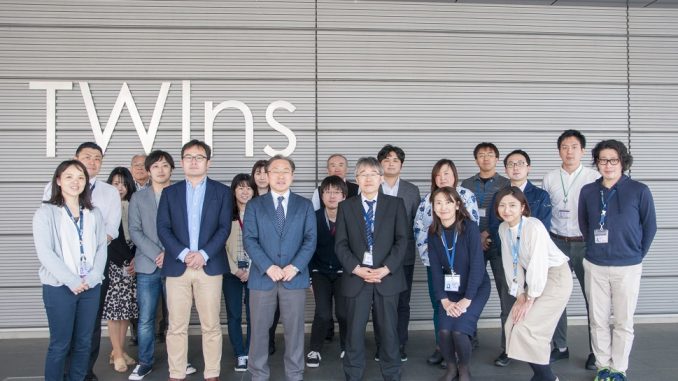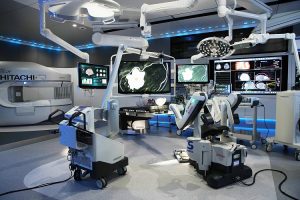
The Faculty of Advanced Techno-Surgery is a group of researchers that supports a series of innovative modalities with technology to provide seamless support before, during, and during treatment. We perform research and development to create a novel and higher quality medical care environment. The main research focus has been on information-guided surgery (iGS) with an intelligent operating theater since 2000. By adopting intraoperative magnetic resonance imaging (MRI), we have performed iGS in glioma neurosurgery on over 1950 patients as of June 2019.
Examples of technology development in our iGS include updated image-guided surgery, awake craniotomy, intraoperative diagnostic monitoring during awake surgery, rapid diagnosis by intraoperative flow cytometry, photodynamic diagnosis and treatment (PDT), touchless user-interface (OPECT), and automated tracking robotic support arm. We are also working to realize the integration of these technologies in our Smart Cyber Operating Theater (SCOT) by expanding our research and development framework to encompass interdisciplinary partnerships in the field of medical engineering with academic, industrial, and government.
SCOT is an advanced system that combines various medical instruments that are used during surgery including the open MRI, surgical navigation system, rapid diagnostic system, 4K 3D microscope monitor, and surge’s cockpit. The latest version of Hyper SCOT incorporating robots and AI was developed in 2019, and clinical research has been started. In the future, we aim to realize predictive surgery.
 Fig. Hyper SCOT room installed in Tokyo Women’s Medical University Hospital
Fig. Hyper SCOT room installed in Tokyo Women’s Medical University Hospital
Furthermore, in the field of oncology, we are striving to realize the fourth modality of cancer therapy after surgery, radiotherapy, and chemotherapy, namely sonodynamic therapy, by combining the use of high-intensity focused ultrasound therapy and sonosensitizer (SDT). We have already conducted a clinical study of SDT on intractable pancreatic cancer.
Our laboratory brings a multidisciplinary approach to all of our processes, from basic research to clinical application and product development. One of our goals is to create a development research model for the commercialization of products for next-generation joint (academic) medical engineering research, translational research, and products. We have not only academics, but also researchers from companies and students of doctoral courses who are interested in rapid research, development, medical care. We also have international collaborations with research groups in Europe, Asia, and the U.S. In 2020, we will be hosting the Olympic/Paralympic games at Tokyo, and we welcome you to visit our laboratory while visiting Japan!
